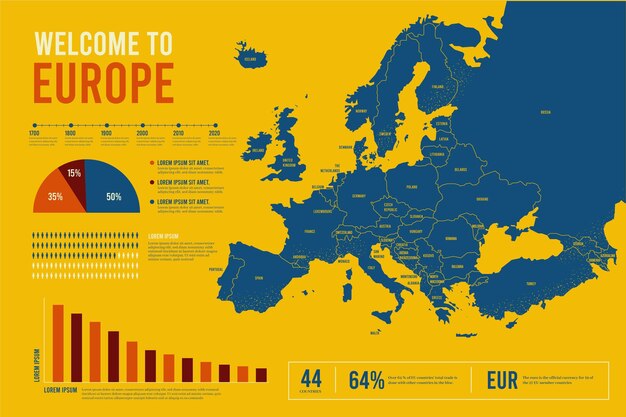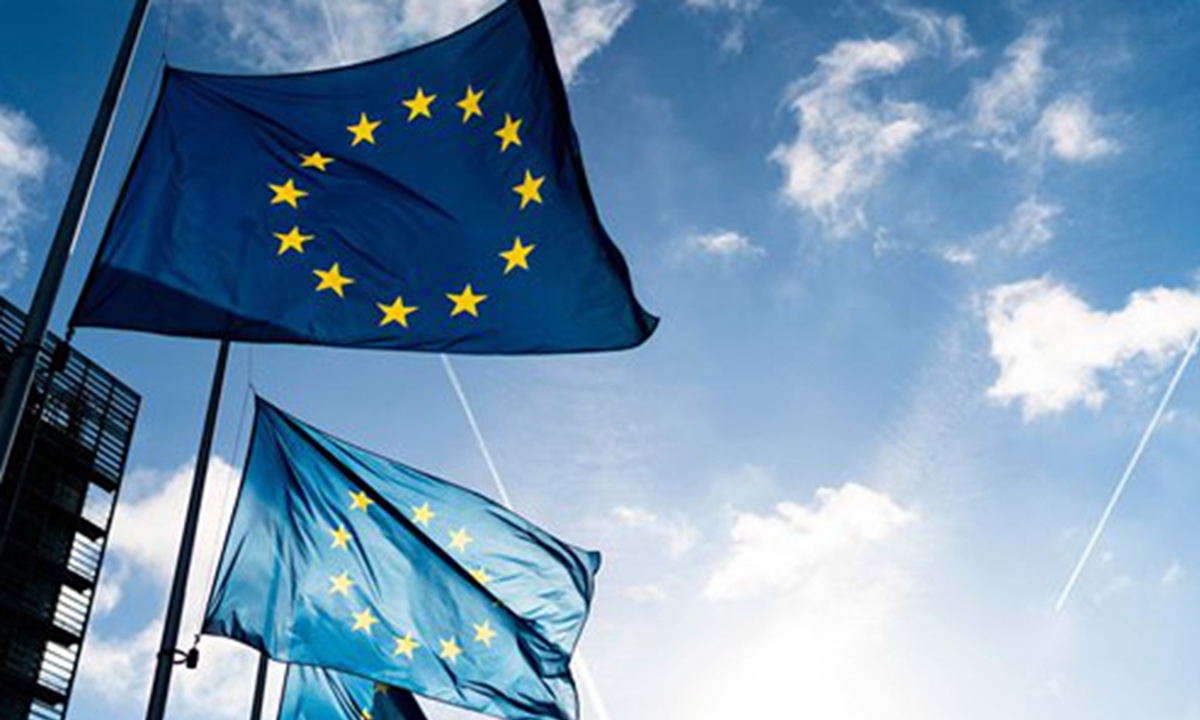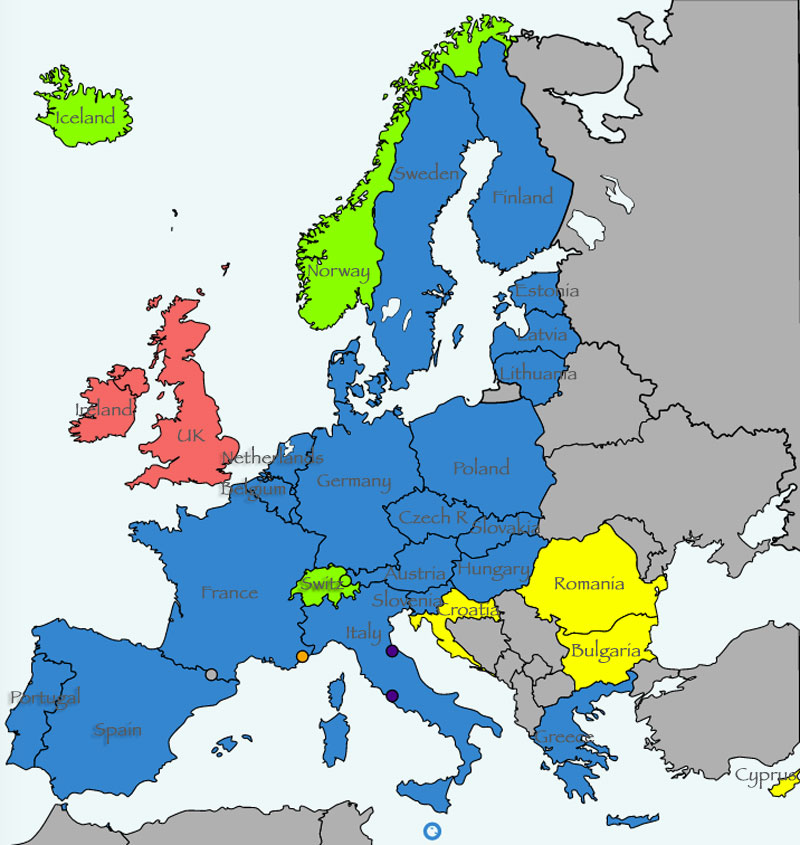Europe Map Countries And The European Union Politics
The Eurozone: 19 countries in the Europe map region utilize the euro (€) as currency. Austria, Belgium, Cyprus, Finland, France, Germany, Greece, Ireland, Italy, Luxembourg, Malta, the Netherlands, Portugal, Slovakia, Slovenia, and Spain are all members of the European Union. Eleven other European Union countries do not utilize the euro.
Author:Finn WildeReviewer:Michael RachalFeb 25, 202281K Shares1.9M Views

Austria, Belgium, Cyprus, Finland, France, Germany, Greece, Ireland, Italy, Luxembourg, Malta, the Netherlands, Portugal, Slovakia, Slovenia, and Spain are all members of the European Union.
Eleven other European Union countries do not utilize the euro. Bulgaria, the Czech Republic, Denmark, Estonia, Hungary, Latvia, Lithuania, Poland, Romania, Sweden, and the United Kingdom (often known as the UK, which includes 'Great' Britain) all utilize the sterling pound.
What Is The European Union?
The European Union, also known as the EU, is a 28-country economic and Europe map politicalalliance in the Europe map region.
It was founded after World War II to promote economic cooperation, with the belief that countries that trade with one another are less likely to go to war with one another.
It has since evolved into a "single market," allowing commodities and people to flow freely between member states, almost as if they were one country.
It has its own currency, the euro, which 19 of the member nations use, as well as its own parliament, which now makes legislation in a variety of sectors, including the environment, transportation, consumer rights, and even mobile phone costs.
Brexit Summary From The BBC is given below.
Is UK Under Europe?
The United Kingdom of Great Britain and Northern Ireland, generally known as the United Kingdom (UK) or Britain, is a sovereign country in north-western Europe, off the north-western coast of the European mainland.
Why Is The United Kingdom Exiting The European Union?
On Thursday, June 23, 2016, a referendum – a vote in which everyone of voting age can participate – was held to determine whether the United Kingdom should leave or remain in the European Union.
By a 52 percent to 48 percent margin, Leave prevailed. More than 30 million individuals voted in the referendum, resulting in a 71.8 percent turnout.
What Has Transpired In The Aftermath Of The Referendum?
Theresa May is the new Prime Minister of the United Kingdom.
David Cameron, who resigned the day after losing the referendum, was succeeded by the previous home secretary.
Mrs. May, like Mr. Cameron, was opposed to Britain leaving the EU, but she has stated that she will respect the people's decision.
"Brexit means Brexit," she has stated, but there is still much discussion about what that means in practice, particularly on two major issues: how British corporations conduct business in the European Union and what restrictions are imposed on the rights of European Union residents to live and work in the UK.
What About The Economic Situation?
Although the value of the pound remains near a 30-year low, the UK economy looks to have withstood the first shock of the Brexit decision, but opinion on the long-term effects of leaving the EU is sharply divided. Some prominent corporations, such as Easyjet and John Lewis, have stated that the drop in the value of the pound has increased their costs.
The United Kingdom has lost its highest AAA credit rating, raising the cost of government borrowing. However, stock prices have recovered following a sharp drop, with the FTSE 100 and the broader FTSE 250 index, which contains more British-based companies, both trading higher than before the referendum.
With some economic indications pointing to a downturn, the Bank of England is hoping that its decision to lower interest rates from 0.5 percent to 0.25 percent — a record low and the first fall since 2009 – will fend off recession and promote investment.
Conclusion
The European Union is a unique cooperation of Europe map regional countries known as the Member States, rather than a state. They encompass a large portion of the European continent. Citizens of the European Union are also citizens of the EU member states. Currently, the EU consists of 27 countries.

Finn Wilde
Author
For Finn Wilde, the wilderness is more than just a destination - it’s a way of life. Over the past decade, he has led multiple expeditions in some of the world’s most remote regions, from the icy fjords of Greenland to the rugged trails of Patagonia.
Finn emphasizes sustainability in all of his adventures, helping participants connect with nature while promoting responsible exploration. His expeditions inspire individuals to explore the great outdoors while fostering a deep respect for the environment.

Michael Rachal
Reviewer
Michael Rachal believes that luxury lies in the details. With over 20 years of experience in the luxury travel industry, he has crafted hundreds of bespoke itineraries for clients seeking personalized, unforgettable experiences.
Whether guiding clients through private cultural tours or curating culinary journeys with world-renowned chefs, Michael ensures that each trip is tailored to perfection.
His ability to anticipate needs and exceed expectations has earned him a reputation as a leading expert in luxury travel.
Latest Articles
Popular Articles

